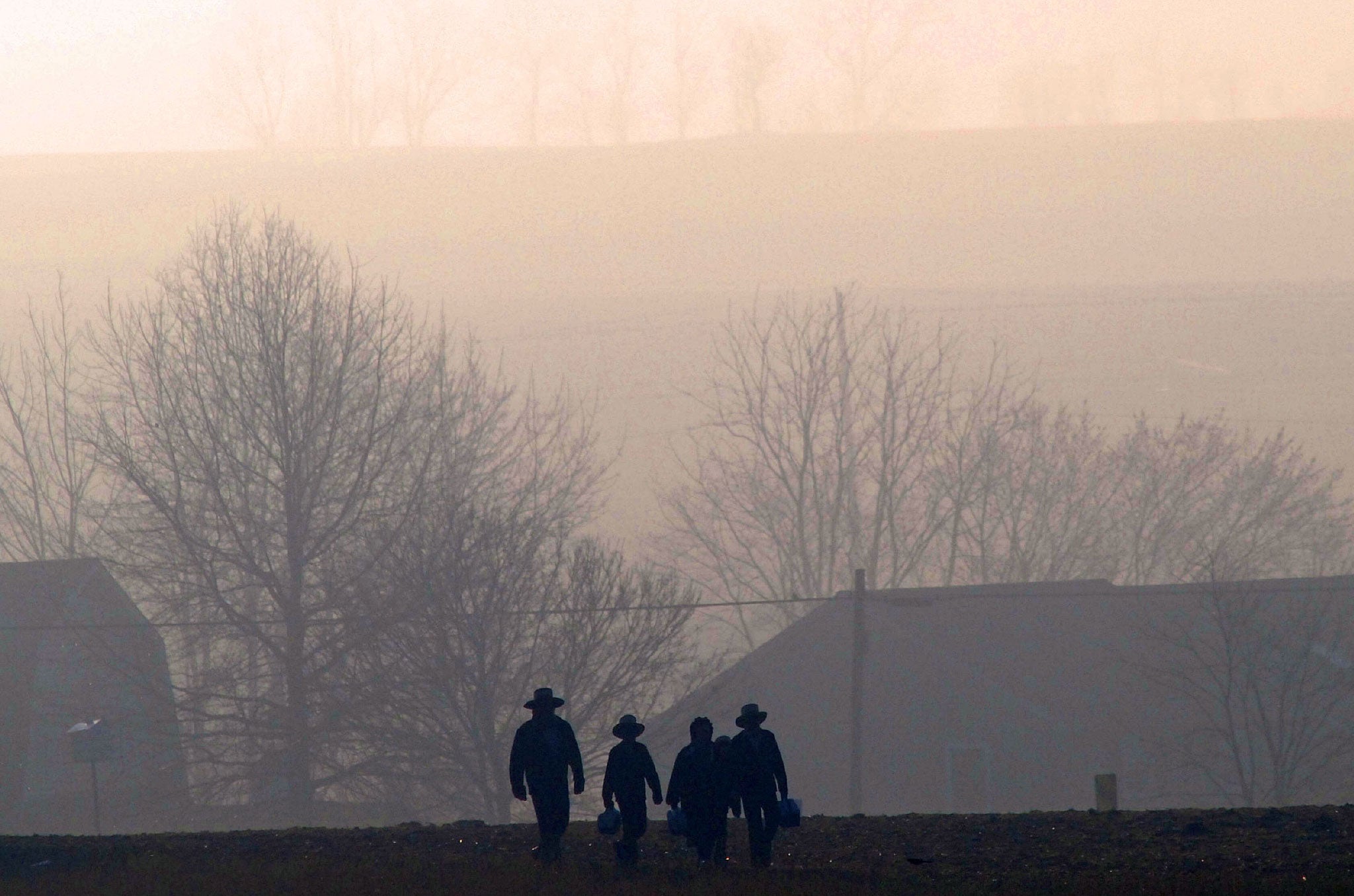The Independent's journalism is supported by our readers. When you purchase through links on our site, we may earn commission.
A pregnant 13-year-old, two Amish brothers too delicate for prison, and the terrible reality of the American justice system
I was 19 years old when I accepted a job with a front-row seat to human suffering, but this case still turned my stomach

Your support helps us to tell the story
This election is still a dead heat, according to most polls. In a fight with such wafer-thin margins, we need reporters on the ground talking to the people Trump and Harris are courting. Your support allows us to keep sending journalists to the story.
The Independent is trusted by 27 million Americans from across the entire political spectrum every month. Unlike many other quality news outlets, we choose not to lock you out of our reporting and analysis with paywalls. But quality journalism must still be paid for.
Help us keep bring these critical stories to light. Your support makes all the difference.
In a recent case out of Webster County, Missouri, two Amish brothers — one aged 22 and the other 18 — pleaded guilty to repeatedly raping their 12-year-old sister. Their punishment? 100 hours of community service, a $250 fine, and an apology letter.
In an all-too-familiar tune, their prosecutor worried about the welfare of the brothers, who, he said, “would’ve been eaten alive in the state prison system.” Meanwhile, their sister gave birth to a child fathered by one of her rapists just after she turned 13.
I was 19 years old when I accepted a job with a front-row seat to human suffering. While attending college at a nearby university, I began working at a women’s shelter in central Missouri.
Shuttling between campus and the shelter often felt more like being catapulted between two worlds. One moment, I lunched with sorority sisters in a multi-million-dollar house in Greek Town. Thirty minutes later, I would meet with a beat-up woman who had escaped her abuser and had the bruises to prove it.
My job at the shelter was a case study in contradiction: Court systems weren’t always working for the good of crime victims; women I thought had “perfect” lives experienced harassment, assault, and rape; and community leaders were exposed as abusers in the privacy of their own homes.
It is jarring to contemplate what makeup or a closed door can hide. It’s even more frightening to imagine what might occur in a rural community where local officials don’t take children’s rape claims seriously.
In my first week at the shelter, I learned lessons my years in anti-trafficking advocacy had not taught me. I spoke with clients weary of homelessness due to addiction. I played with frail middle-school students who couldn’t read. I looked over applications for worn-down public housing units. Situational disruption is the inheritance of abuse, so it seemed reasonable that abusers might face some themselves.
For months — sometimes years — our clients engaged with the state legal system, obtaining restraining orders and testifying against abusers. Sometimes, the system would provide healing for survivors. More often, judges would only prolong an abuser’s ability to torture and control others by ordering mandatory participation in domestic violence trainings in lieu of jail time.
These trainings seldom treat the underlying problem: abusers’ desire to control others, typically women. Unless the abuser chose to participate on their own, the trainings usually had no effect.
That’s why the Webster County plea deal is infuriating — a court-ordered apology letter does nothing. It might make a judge feel better about their decision, and it may provide the community with a perceived redemption story, but ultimately, a letter does nothing for a 13-year-old rape survivor. Instead, it makes a laughingstock of her suffering, and it gives the brothers an implicit license to rape again.
Nationwide, the same officials who spend their careers preaching the gospel of justice turn a blind eye to survivors, giving their rapists anywhere from zero to 45 days in prison. In one case, an abuser was lucky, and officials gave him a two-for-one deal: two rapes for one night in jail. As long as the system prioritizes white males’ futures over public safety, officials will continue to dole out ineffective punishment for survivors’ trauma.
In summer 2016, a horrified world watched Brock Turner receive a six-month prison sentence for rape. The Stanford athlete’s California judge infamously lamented that more prison time would have a “severe impact” on Turner’s life. The case is a sickening parallel to Webster County, where the prosecutor’s concern for the brothers’ futures overrode justice for their sister.
Until public officials offer consequential punishment for rape, these cases will continue to cycle through the system again and again. As an advocate of survivors, I’ve seen the devastating impact of sexual violence, and I mourn for the women and children who suffer further because of a system that provides plush deals for abusers. Across Missouri, public officials claim to protect the good and safety of the community. It’s time to back ideals with action.
Join our commenting forum
Join thought-provoking conversations, follow other Independent readers and see their replies
Comments